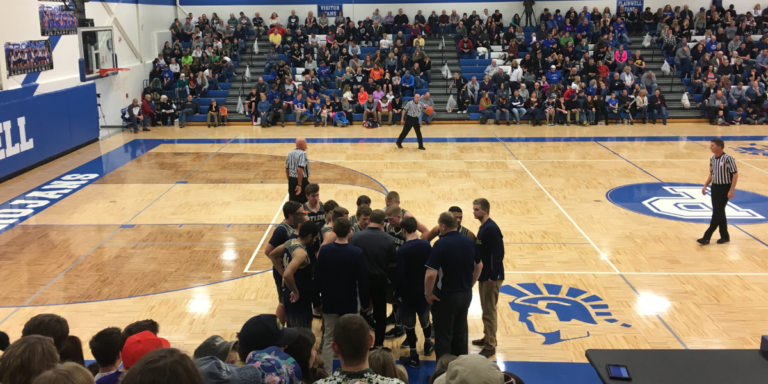5 Strategies To Improve Your Team Through Video
Video is a great tool to have and can really help your team improve quickly. But are you using video to get the most out of your players? This is the exact conversation I had with a coach just the other day. He is trying to get his team to cut down on turnovers and wants to be sure his players are learning as much as possible in the video sessions. I thought I would share my thoughts with you on how to best get your team to grow and improve through video.
1. Keep film sessions to 20 minutes.
Do you remember the ridiculously long film sessions with your coach hitting the fast forward and remind buttons way too often? That was college for me. I know my attention span wasn’t very long back then and today’s high school players don’t have any longer attention span. I’ll be the first to say I am not a coach who thinks I need to entertain players. The film session is meant to give the players an idea of what we will see from our opponents and what we want to work on and emphasize in order to play at a high level. This may be done in one or two film sessions, but either way you’ll lose the players around the 20 minute mark.
2. Show players their mistakes, but don’t beat them over the head with them.
Film can be great to point out a mistake a player doesn’t know they are making or to show a team how to fix a mistake they are struggling to correct. Once the player knows about the mistake don’t continue to show them every time they make the mistake though. Players will become fixated on the mistake and will be so hyper focused on this area that other areas of their game will suffer. In my opinion they will be more likely to make the mistake you told them not to make more often if you continually show them their mistakes.
3. Emphasize the things you want to see, not what you don’t want to see.
Find examples of where your team did something correctly and show them this action several times. If you don’t want turnovers show them where they made good, safe passes that kept the offense alive. This will reinforce what you want from the team instead of reinforcing the passes and turnovers you don’t want.
As an example, I took our last game and found a clip of players playing hard or being fundamental during the game. We went through each clip and I pointed out why we need to play hard, fundamental basketball, even if the play doesn’t show up in the stat sheet in order to win consistently. We certainly made our fair share of mistakes, but I want the players to know what types of plays we need more of so that is what I showed them and emphasized in our film session.
4. Find the mistakes they need to fix and then coach them to fix those mistakes.
Coaches sometimes fall into the trap of telling a player what they did wrong and thinking the player will automatically fix the problem. Wouldn’t it be nice if coaching were this easy?
As coaches we need to find the problem, make sure the player understands the problem, and then give them the tools to fix the problem. This may be watching more film, but most often it’s putting in drills or giving players reps in a live scrimmage and coaching them through situations that helps the player learn and grow. If you just show them the problem you’ve only done part of your job. The real work starts after the problem is identified by you and the player.
5. Have players analyze their own play.
A great way to get players to learn and grow is to have them think critically about their game. Give them a score sheet or ask them write down the mistakes they see or the good plays they made. When players look at film critically instead just watching themselves for fun they see things differently and start to understand the game more.
This approach is especially effective with point guards. I ask my point guards to take control of the team and make play calls while on the floor. If they bring a suggestion to me in a timeout I listen and usually implement what they say. The point guard is on the floor and I have a lot of trust in them. How did I gain this trust? Through film, by asking them questions, and constantly communicating with them about what is happening in practice and in games.
Take the next step in your coaching journey.
Join me as a part of the Coaching Lab and learn to coach and lead your team to greater success.







